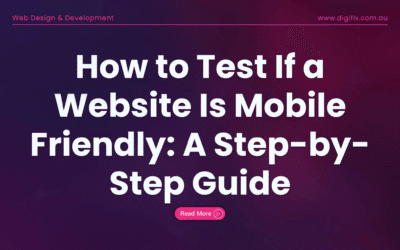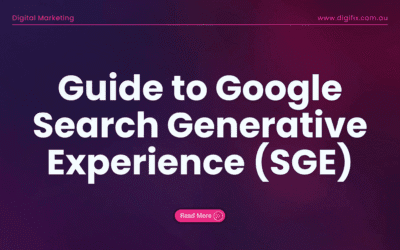This blog explains what is an SSL certificate & importance of SSL certificate to protect your customer data from data breaches & hackers.
What is an SSL certificate?
SSL stands for Secure Sockets Layer. It’s a security method that makes a safe, coded link between a website and your web browser.
An SSL certificate is like a digital ID card for a website, confirming its identity and allowing for a secure, coded connection.
Businesses and organizations must include SSL certificates on their websites to protect online transactions & ensure the confidentiality and security of customer data.
Now, let’s try to understand this more simply.
An SSL certificate is like a security badge for a website. It confirms the website is trustworthy and keeps your information safe when you visit it. You can tell a website has this security badge when you see a little padlock symbol next to its name in your web browser.
The simplest way to check if a website is secure with SSL is to look at its web address. It should start with “HTTPS.”

Click the padlock icon in the address bar to learn more about website security. It will give you more information about the website’s SSL certificate.
Why do I need an SSL Certificate?
Websites need SSL certificates for several critical reasons. Let’s see the importance of SSL certificate.
These certificates assure the security of user data, verify the website’s ownership, prevent malicious actors from making fake sites, and invest trust in users.
Sometimes, websites require users to sign in and input personal information like credit card details. When a website collects confidential information, it is essential to protect that data.
An SSL certificate helps secure various types of information, including:
- Login information.
- Credit card transactions or bank details.
- Personally information (e.g., name, address, date of birth, or phone number)
- Medical records
SSL certificates are critical in ensuring the privacy of online interactions by informing users that the website is trustworthy and a secure place to communicate personal data.
And you need an SSL to obtain a HTTPS web address. HTTPS is the secure version of HTTP. HTTPS means a website protects its traffic using an SSL.
When there is no SSL certificate, users will see your website with a “not secure” label. That will alert them that your website is not secure.
Types of SSL certificates
There are six types of SSL certificates you can obtain,
- Extended validation certificates.
- Domain validated certificates.
- Wildcard SSL certificates.
- Organization validated certificates.
- Multi-domain SSL certificates.
- Unified communication certificates.
- Extended Validation certificates
An Extended Validation (EV) SSL certificate is like the VIP of SSL certificates. It’s the fanciest & most expensive one. People usually use it for large & important websites that gather user information & deal with online payments.
Ex: e-commerce websites.
When you have an extended validation certificate for your website, it shows a padlock and “HTTPS” in the web address bar. But the cool thing is it displays the business name and the country as well.

It helps people know 100% that the website is legit and not a fraud.
Getting this type of certificate isn’t easy. The website owner has to prove they own the website seriously. This method guarantees only the right people can use the EV SSL certificate.
- Domain Validated Certificates
Think of Domain Validated (DV) SSL certificates as the most basic version. They’re like the minimum-security lock for websites.
Domain-validated certificates are perfect for simple websites like blogs or informational sites. These websites don’t ask for your personal information or handle online payments.
Getting a DV SSL certificate is easy and affordable. All the website owner has to do is show they own the website. It’s like saying, “Yep, this website is mine!” They can do this by responding to an email or a phone call.
When you visit a website with DV SSL, you’ll see “HTTPS” and a padlock in the web address bar. But you won’t see the business name. It’s like having a simple lock without any fancy features.
- Organization validated certificates.
This version is similar to extended validation certificates. To obtain this, website owners have to go through a complete validation process.
Organization-verified certificates display the website owner’s information in the address bar to distinguish genuine websites from fake ones. These certificates are the second most expensive (after EV SSLs), and their function is safeguarding sensitive data throughout transactions.
Commercial or public-facing websites should install an OV SSL certificate to protect any shared customer information.
- Wildcard SSL Certificates.
Imagine having a big house with many rooms & you want to put a special lock on all the doors. Wildcard SSL certificates serve as a master key for those locks. In simple terms, these certificates help to protect a base domain & unlimited sub-domains with a single certificate.
Usually, you’d need a separate SSL certificate for each door (or subdomain) on your website. But with a Wildcard SSL certificate, you get one certificate that can secure all those doors at once.
So, if your website has different sections like blog.yourwebsite.com, shop.yourwebsite.com, and so on, a Wildcard SSL certificate lets you protect all of them with just one certificate. It’s like having a single key to access all the rooms in your big house, which makes managing security easier and more convenient.
- Multi-Domain Certificate.
A Multi-Domain Certificate (MDC) is a digital security certificate that protects multiple domains or subdomains with a single certificate.
It achieves this by listing all the domains it secures as Subject Alternative Names (SANs).
MDCs are efficient and cost-effective because they let you secure many web domains with a single certificate, which reduces management costs and time.
These certificates provide visitors with safe, secure connections across all supported domains, making them a flexible and useful option for organizations or people with several online assets.
- Unified Communications Certificates.
A Unified Communications Certificate is a specialized digital certificate that secures communication and collaboration services in unified communications (UC) environments.
Under one certificate, it is easier to secure numerous domains, hostnames, and services like VoIP, email, and instant messaging.
This certificate is ideal for businesses who use UC platforms like Microsoft Exchange or Skype for Business since it makes managing and paying for the security of these various communication channels easier and more affordable.
SSL Certificates: Safeguarding Your Online World
We hope you git a clear idea about What is an SSL certificate & importance of SSL certificate.
SSL certificates are the heroes in a world where data security is essential. They protect the privacy of your online communications, build confidence, and protect your data.
Their significance is apparent in e-commerce and personal blogs alike. So, whether you own a business or are just a casual web user, accepting SSL certificates is a step that results in a safer, more trustworthy online experience.
We hope you got an idea on “What is an SSL certificate?” from this blog article. We hope to bring more blog articles in the future related to SSL certificates.
You may like below article as well,
Do you want more traffic?
—————
Hi, we are an Australian digital agency doing groundbreaking work to help a business like yours reach its full potential. My only question is will you qualify for our services?
Do you want more traffic?
—————
Hi, we are an Australian digital agency doing groundbreaking work to help a business like yours reach its full potential. My only question is will you qualify for our services?





0 Comments